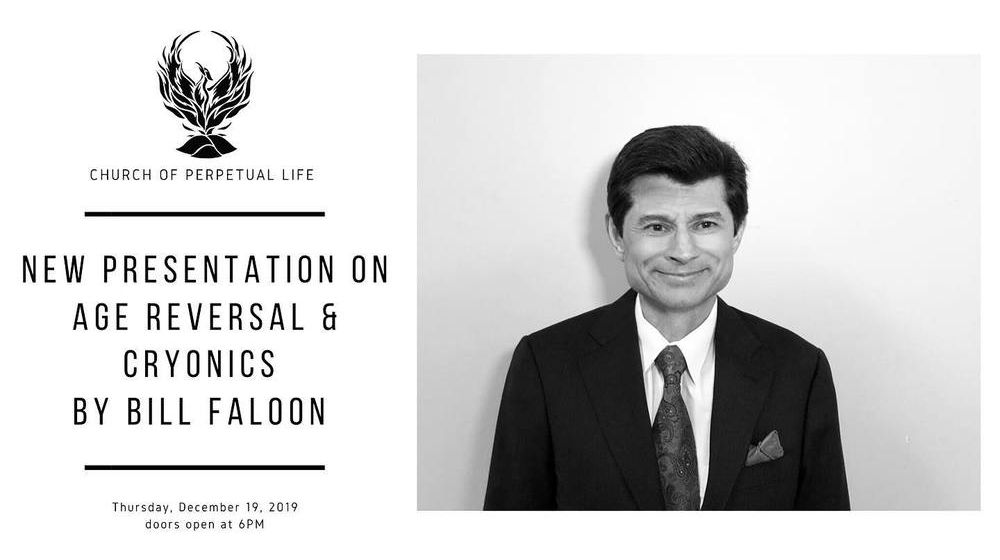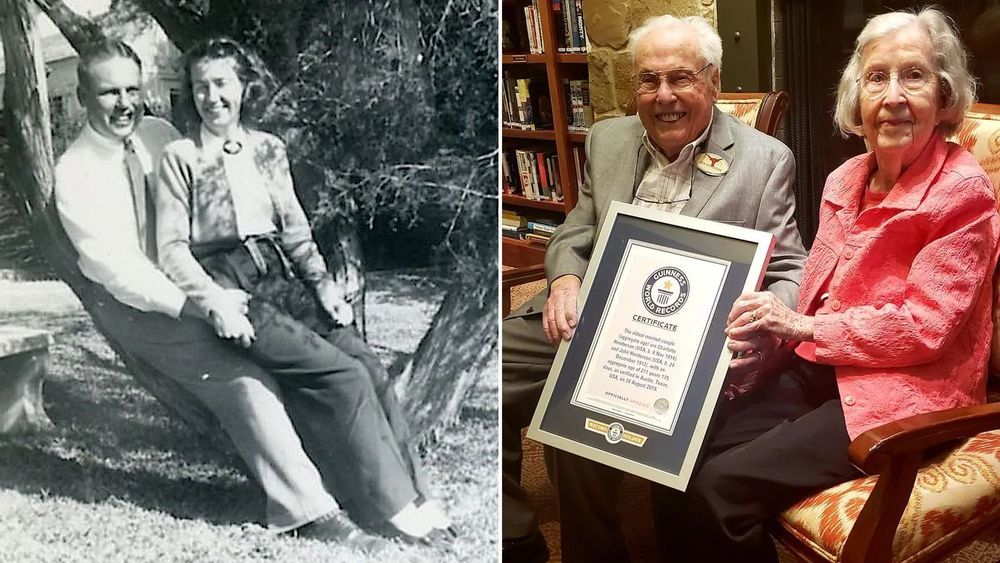Recorded at ApplySci’s Wearable Tech + Digital Health + Neurotech conference — November 14, 2019 | Harvard Medical School.
Category: life extension – Page 454
Briefing of the Longevity World Forum in Valencia, Spain (Nov 2019)
Liz Parrish in Spanish is still good… AEWR.
Briefing of the highlights of second day (Nov 15, 2019) at the Longevity World Forum that took place in Valencia, Spain.
Liz Parrish, founder and CEO of BioViva Science, took the stage that day and was closely followed by the media press covering the event.
I have to say it was a great event and I will repeat next year for sure.
For more info on BioViva and its exclusive partner Integrated Health Systems (IHS), please visit the following websites:

Join us on Thursday, December 19th at 7PM (our doors will open at 6 PM)!
We will have a New Presentation on Age Reversal and Cryonics by Bill Faloon. 🤩 😎
Come early and enjoy snacks and conversation and stay afterward as we have a delicious 5-star dinner reception for Bill Faloon.
Before and after the service we will enjoy tasty food and interesting discussions on Age Reversal, Cryonics, Singularity and other topics of interest for all Immortalists.
Dr. David Sinclair Webinar – Lifespan: Why We Age – and Why We Don’t Have To
As part of the LEAF Longevity Bookclub and to celebrate the launch of Dr. David Sinclair’s new book, Lifespan: Why We Age and Why We Don’t Have To, we hosted a special webinar on the 18th of September. The new book takes us on a journey through the biology of why we age and spotlights the exciting research being done in the lab today which could potentially change the way we treat the diseases of aging.
Dr. David Sinclair is a professor of genetics at Harvard Medical School. One of the leading innovators of his generation, he has been named by Time as “one of the 100 most influential people in the world” and in the top 50 most influential people in healthcare. He is a board member of the American Federation for Aging Research and has received more than 35 awards for his research and major scientific breakthroughs. Dr. Sinclair and his work have been featured on 60 Minutes, Today, The Wall Street Journal, The New York Times, Fortune, and Newsweek, among others. He lives in Boston and enjoys hiking and kayaking with his wife and three children.
Multiple prominent personalities and channels, including Joe Rogan, David Pakman, and Utah Public Radio, have interviewed him about his book, and we took the opportunity to allow the community to directly contact him. The webinar was an open event that offered up to 100 people a chance to join the video conference with Dr. Sinclair and to participate in the Q&A session following a reading of some of the exciting sections of the new book. We are delighted to announce that the webinar was an outstanding success, with over 90 people joining the call live to take part as well as many more watching via the livestream on our Facebook page. Five lucky attendees also won a copy of the book courtesy of Dr. Sinclair, and we would like to thank him for this kind offer as well as for taking the time to conduct this webinar with us.
Aubrey de Grey | Raching Escape Velocity in Longevity for Most Alive Today | VISION WEEKEND 2019
Vision Weekend is the annual member gathering of Foresight Institute, a non-profit for advancing beneficial technologies for the long-term flourishing of life.
More info on speakers and program: https://foresight.org/vision-weekend-2019/.
Join Foresight Institute’s community: www.bit.ly/foresightnews


Insights into anti-aging properties of experimental Alzheimer’s drug
Scientists from the Salk Institute for Biological Studies are homing in on exactly how two new experimental Alzheimer’s drugs could be generating the anti-aging effects seen in early animal studies. The discovery of a unique metabolic pathway, associated with both general aging and the onset of dementia, offers researchers novel directions for future anti-aging studies.
Salk researchers have been developing two experimental drugs for several years with a view on improving cognition and slowing the neurodegenerative decline associated with Alzheimer’s disease. Called CMS121 and J147, the drugs were effective in slowing the progression of Alzheimer’s in initial animal tests. However, the compounds also seemed to demonstrate signs of slowing down general markers of brain aging.
As the two drugs move toward human trials, the researchers have been working to uncover exactly what molecular mechanisms are at play to explain how they work. One potential mechanism was uncovered in early 2018 but that was only part of the story. Now, the Salk team has uncovered an exciting new molecular pathway, influenced by the two drugs, that could explain how the compounds slow down brain aging.
Can humans live forever?
Can we live forever?
